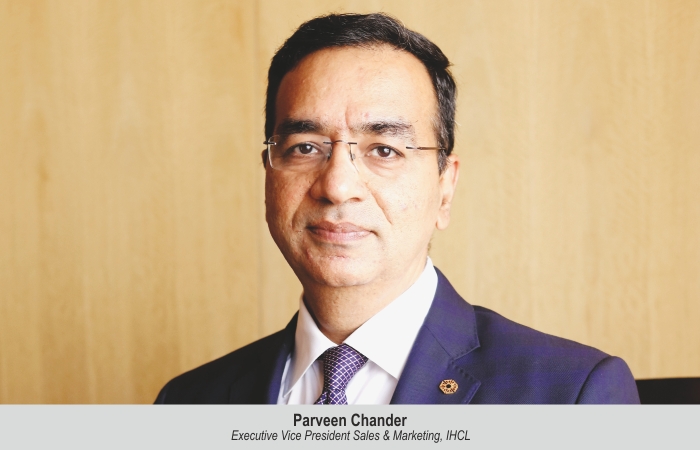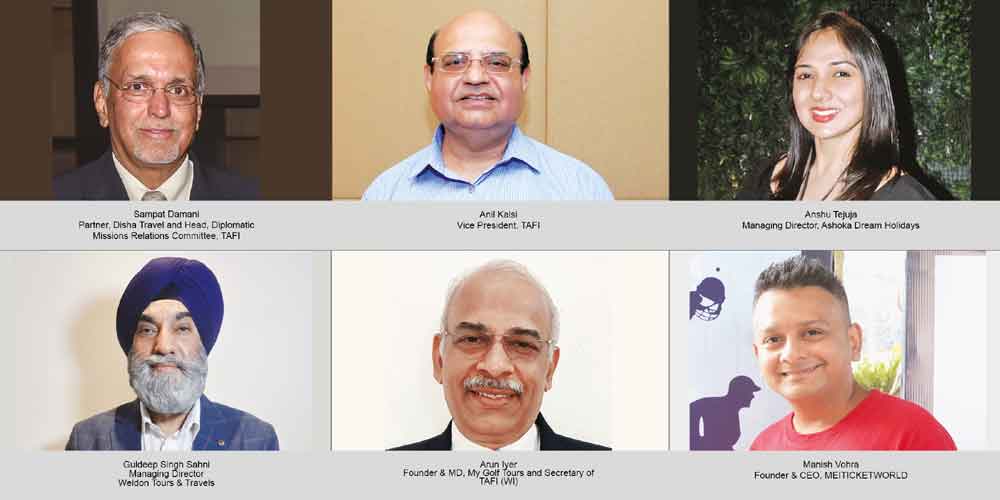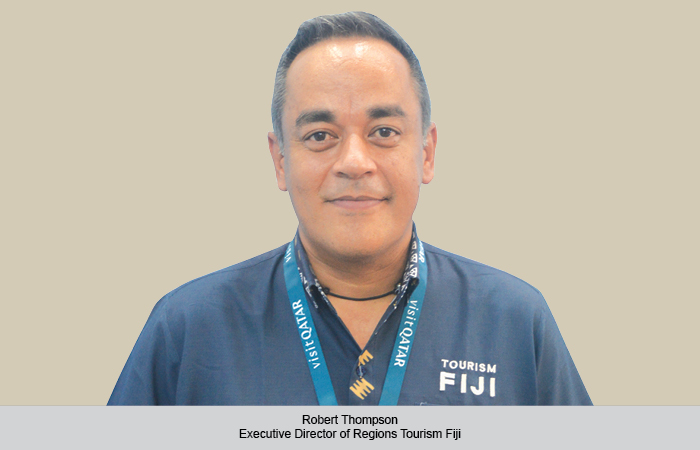The past two years have proven that the travel and hospitality is equipped to adapt to the times we live in. The resilience of the sector is what makes it one to be reckoned with, as it continues to treat trends as opportunities. Parveen Chander, Executive Vice President, Sales & Marketing, IHCL reveals the top trends that will shape the industry in 2023.
Janice Alyosius
With the hospitality sector contributing 9.3 per cent to the overall Indian GDP and accounting for more than 8 per cent of India’s total employment with over 60 million jobs pre-pandemic, the sector plays a key role in driving economic growth, and it is imperative to further develop the sector strategically to boost India’s position as leading global economy.Parveen Chander, Executive Vice President, Sales & Marketing, IHCL said, “The sector shows a huge potential for manifold growth in the future; and in India, there is growing focus on developing the sector to strengthen India’s position on the global travel and tourism map.”According to Chander, as we look forward to 2023, here are a few trends that will be shaping the travel and hospitality industry in coming times.
Rise of the working nomads
Chander shared that of the many long-lasting impacts made by the pandemic, one that is here to stay and will evolve in coming times is the hybrid model of working. “An increasing number of organisations have adopted flexible work policies that allow people to adopt a work-from-anywhere lifestyle, which is a huge opportunity in disguise for the travel and hospitality industry to embrace the new generation of digital-first working nomads, who mix business and leisure, thereby creating a new age of bleisure travel. From the latest technology to seamless connectivity to creating contemporary spaces that allow guests to mix work and pleasure effortlessly, the future of hospitality will expand to accommodate bleisure travellers,” he said.
‘Experience’ is the new currency
While travel has always been known to expand one’s horizons, today, travellers’ expectations from travel have evolved to look beyond the usual highlights to explore a destination more comprehensively. Travellers are looking for ‘experiences’ that bring alive the spirit of a destination in all its raw authenticity, from local culture to history to local experiences and traditional arts, food, and heritage. This has resulted in the growth of experiential travel, which brings together a mix of cultural exploration and experience-based activities that allow travellers to delve into all that a destination has to offer. “For hospitality brands, the growth of experiential travel is an opportunity to curate offerings that are immersive, exclusive and unique while staying true to local heritage and traditions,” he said.
Future is sustainability
The need to create a healthier and more sustainable world for future generations is more important than ever, and this growing awareness has led to an increase in the number of conscious travellers looking for brands and experiences that share a similar focus on sustainable practises. This shift in travellers’ mindset has resulted in the trend of sustainable tourism, with an increasing number of travellers seeking not only to reduce their own travel carbon footprint but also to travel with brands that place sustainability at the heart of everything they do.
Chander suggested, “For hospitality brands, the rise of sustainable tourism provides a dual-tiered opportunity, because not only does it encourage one to adopt greener, cleaner business practices in line with travellers’ expectations, but it further inspires brands to adopt measures that make their businesses truly sustainable from the core.”
The healing touch of wellness tourism
The wellness tourism industry is slated to grow to $1098.42 billion in 2026 at a CAGR of 8.2% as per reports. Chander said, “For a country like India, which is home to Ayurveda, this is an opportunity to combine ancient knowledge and modern medical expertise with the beautiful locales that India has in abundance to create wellness experiences that are truly world class.” He further added, “Even as the ‘Heal in India’ initiative boosts India’s position as a global leader in health, hospitality brands can tap into the potential of wellness tourism to develop offerings that allow travellers to embrace holistic rejuvenation practices while enjoying the kaleidoscopic beauty of all that the country has to offer.”
Social tech is the new buzzword
While the advent of technology has been rapid, the pandemic has only accelerated the speed at which technology has been adopted by customers across all walks of life. This has left an impact on the travel and hospitality industry as travellers increasingly adopt digital platforms throughout their travel lifecycle right from planning to booking to in-hotel services to check-out.
 TravTalk India Online Magazine
TravTalk India Online Magazine





